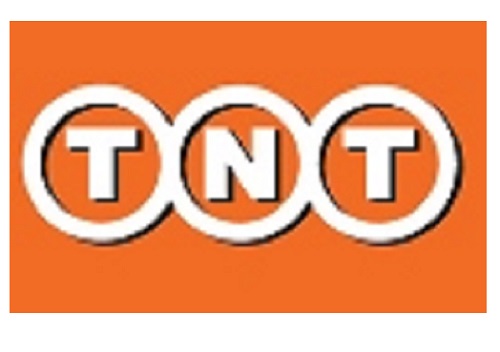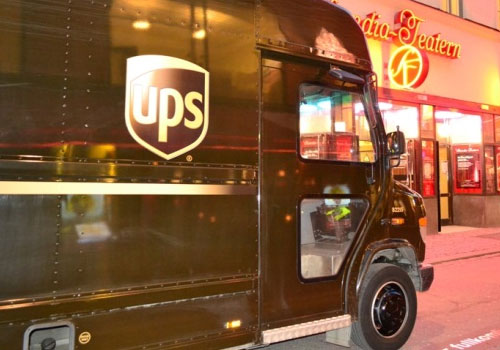
A failure to deliver: The government's part-privatisation model has been called into question by Consignia's plight
Fishponds Crown Post Office, on the outskirts of Bristol, is aprivileged enterprise. In the full glare of aHouse of Commons select committee this week, John Roberts, the chief executive of a business with 200,000 employees and sales of Pounds 8bn a year, was forced into a long defence of his company's decision to relocate the small branch office.
The senior director of an equivalent-sized private company would barely be expected to know where Fishponds was. But Consignia, the state-owned group that runs the Royal Mail, has a unique status and range of responsibilities. Mr Roberts' disclosure this week that it may cut 30,000 jobs in an effort to regain financial stability has put both into the public spotlight.
Since March, Mr Roberts has theoretically had the freedom to run Consignia as an independent public limited company, providing he meets basic service conditions set out in a regulatory licence. In practice, this plc is in the unusual position of answering to a single state shareholder with an interest in both receiving dividends and ensuring that the management does not cause political embarrassment.
That means Consignia's management must find a way of cutting the Pounds 8.1bn cost of running its network without enraging a workforce with the worst strike record in British industry. But within hours of the jobs warning, union officials were on the phone to Douglas Alexander, the Department of Trade and Industry minister. Mr Alexander happens to represent Consignia's sole shareholder.
The DTI is anxious to stress that simply listening to the unions does not mean that it will make any promises to support them. It is nonetheless hard to see how the department can avoid undermining the cherished independence of Consignia's directors. The Communications Workers Union yesterday felt on sufficiently firm ground following the call to issue an ultimatum demanding that Mr Roberts withdraw his threat of 30,000 redundancies by 1pm today or face a strike ballot.
A compromise may yet be possible, particularly since Consignia insists that 30,000 is a only a "worst case scenario" – and 20,000 staff leave each year as a result of natural turnover. The CWU later withdrew its ultimatum when Consignia put these points in writing. But even if this dispute is not enough to upset the delicate balance of part-privatisation, there are plenty of other issues on the horizon that could.
Aside from the fate of provincial post offices such as Fishponds, the thorniest issue is the degree to which competitors are allowed into the formerly protected postal monopoly. Under the part-privatisation structure, such questions are meant to be settled by Graham Corbett, chairman of the industry's regulatory board. But Consignia is already chafing at the weight of public service responsibilities that it faces compared with potential competitors. It believes this will increasingly put it at a commercial disadvantage.
On Tuesday, Mr Roberts told MPs that he had "serious doubts" whether the existing model was working but it was too early to make a judgment. After yesterday's bruising encounter with unions, Consignia was in less accommodating mood. "The public sector monopoly model is no longer fit for the environment in which we operate," said one executive. "We don't have the degree of flexibility that our rivals have, particularly in bringing down our cost base."
Consignia says that if it accepts universal service obligations similar to those imposed on British Telecommunications, it deserves a similar degree of commercial freedom. This would mean being free to set the level of dividends paid to the Treasury, which currently demands 40 per cent of post-tax profits.
Other differences with fully privatised companies include limits on Consignia's freedom to borrow more than Pounds 75m a year or make substantial acquisitions without government approval. In theory, these mirror the requirement that all companies have to consult their shareholders. In practice, John Roberts told MPs they should be relaxed in exchange for allowing new competition.
Consignia's management has supporters in unlikely quarters. Peter Carr, chairman of the consumer group Postwatch, supports Consignia's Pounds 1.2bn cost-cutting target, even though many fear the cutbacks – or the strikes that stem from them – may lead to worsening reliability in the short term. "Service levels are lousy anyway but it's absolutely essential that they tackle these costs," says Mr Carr.
But Postwatch echoes the view of many who have dealt with the Post Office in calling for a fundamental change in its business culture. Mr Carr is particularly scathing of Consignia's claims that its recent interim loss of Pounds 100m crept up on the business as a result of slower than expected growth in the number of letters sent. "Things don't suddenly go wrong. They have been doing this for 350 years and should be able to react better than this."
Signs that the institutional culture throughout the Post Office needs updating are not hard to find. The evidence given by Mr Roberts to Tuesday's select committee included the admission that the lower-than-expected growth in volume was partly due to the use of mobile phone text messages and other forms of electronic mail. Few outside the sheltered world of postal services failed to notice these two trends for as long as Consignia's management.
The government may not want to see conflict between Consignia and the CWU. But it has an even bigger stake in the part-privatisation model working. If it failed in the case of Consignia, that would raise awkward questions about similar entities.
Plans for a company limited by guarantee to run Railtrack bear many similarities with the grey zone between state and private ownership occupied by Consignia. In both cases, the government is anxious to avoid anything that looks too much like a nationalised industry. The biggest difference is that the Royal Mail has traditionally generated substantial dividends rather than requiring subsidies; but if Consignia's current financial crisis cannot be solved by politically embarrassing cost savings, the government may have to decide whether it can maintain its arm's-length distance.













